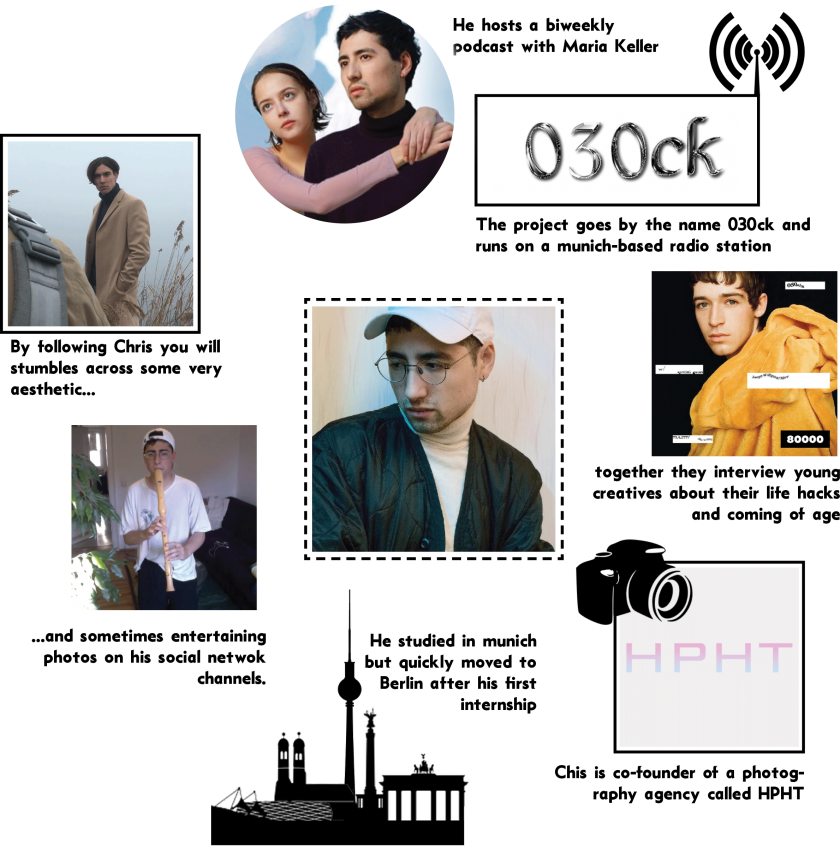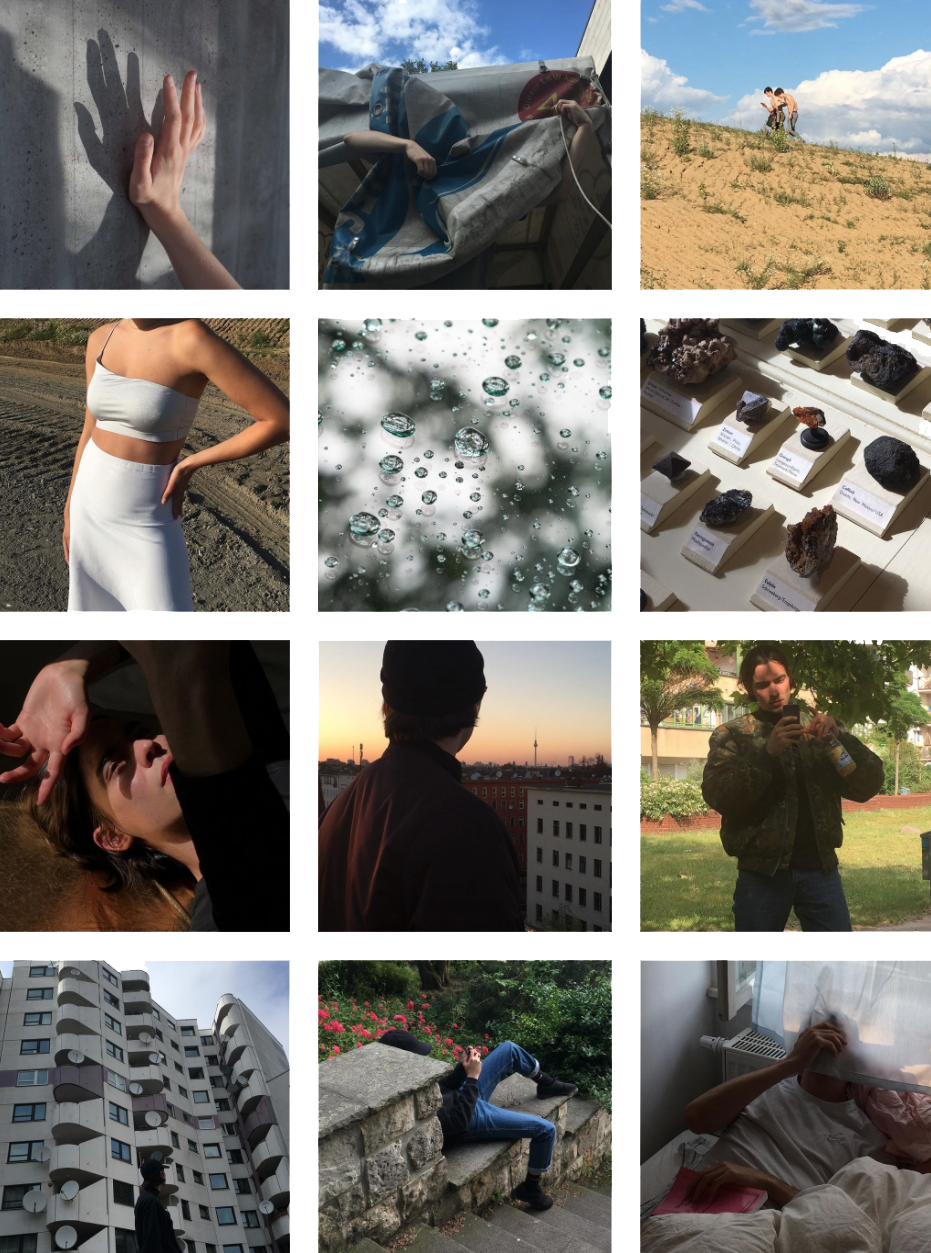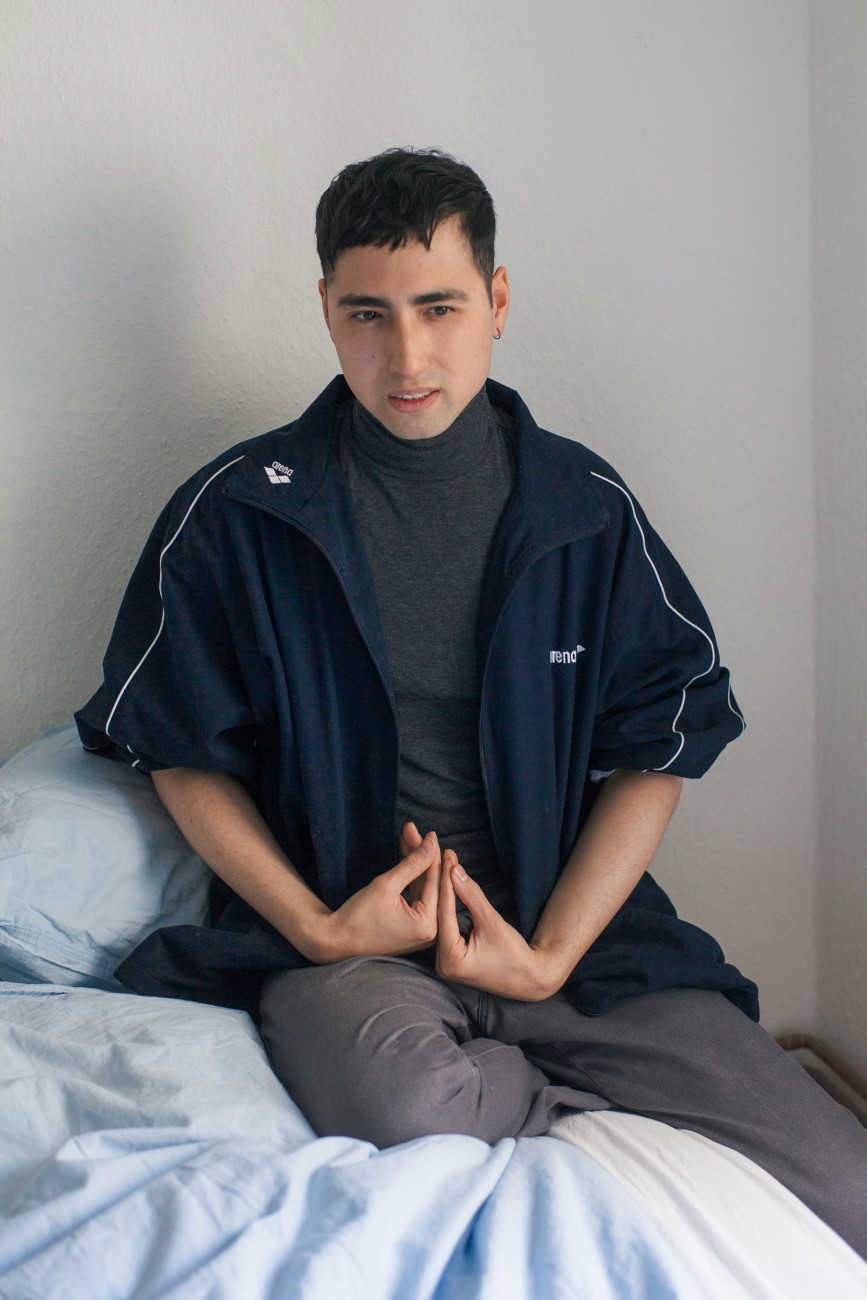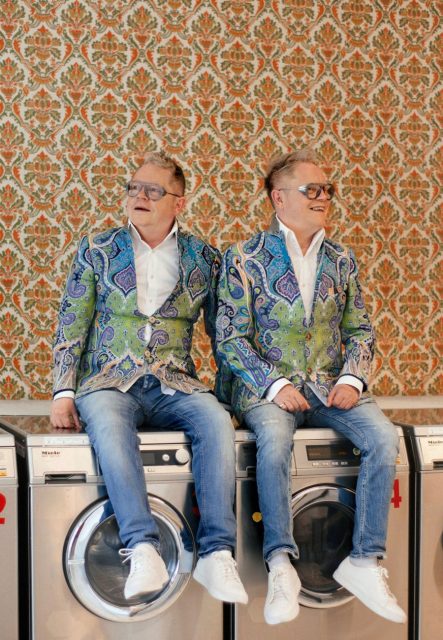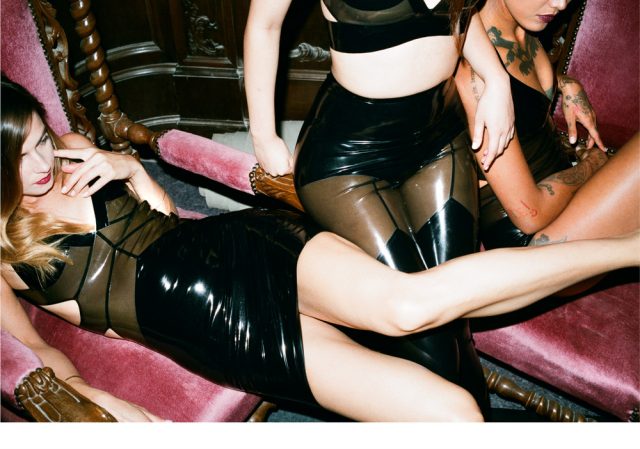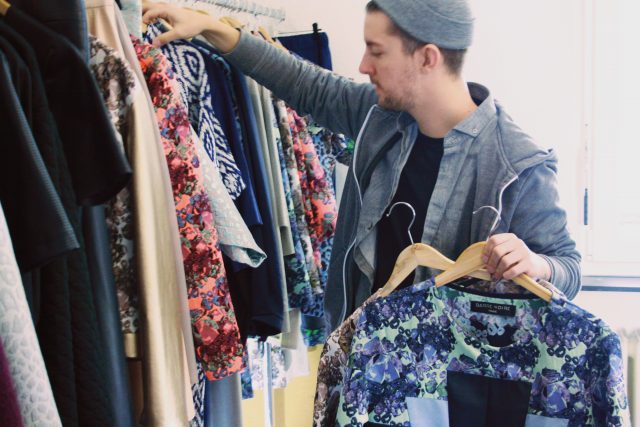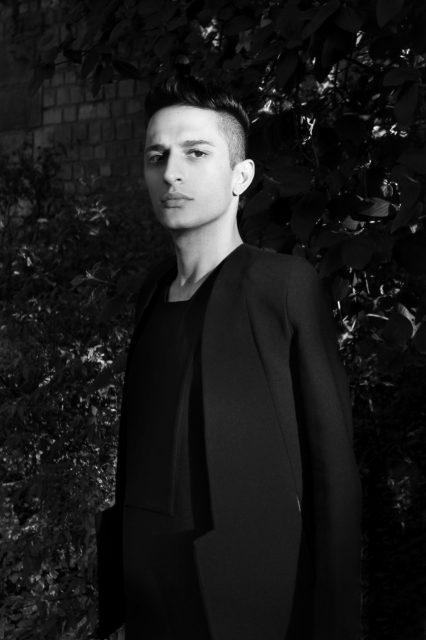We did some more digging! This week we met Christopher Cao, photographer, 030ck host, and co-founder of agency hpht. We discussed the hanky code, Berlin cliches, and the semiotic value of clothes…
ΠMagazine: You moved here from Munich three years ago. A lot of people claim they finally felt free to dress the way they wanted in Berlin. Did you?
Christopher: (laughs) A lot of people do, but I think Berlin makes you feel free if you fit into whatever freedom is made up of at a certain time!
ΠMagazine: You were doing a lot of photography before. In Berlin, you started an agency and a podcast. Have these things influenced your style?
Christopher: I’m sure they did, but I think I’m always a bit of a shape shifter. I listen to everything from German rap to hardcore techno and David Bowie. I don’t take it too seriously and the same thing goes for clothes. I can get into so many different tastes and styles. I love looking very sleek and cute, but I can easily imagine wearing a punk outfit for example.
ΠMagazine: Would your behavior or attitude change if you wore a punk outfit?
Christopher: Mmm, well that was an example. Maybe a little and maybe just to have a little fun, but I wouldn’t wear one style head to toe. I really like to work with contradictions, but I don’t want to shock or offend people. Also, I want people to know that I’m not fully invested in one role. I try not to evoke strong emotions and just want to make people wonder with subtle things.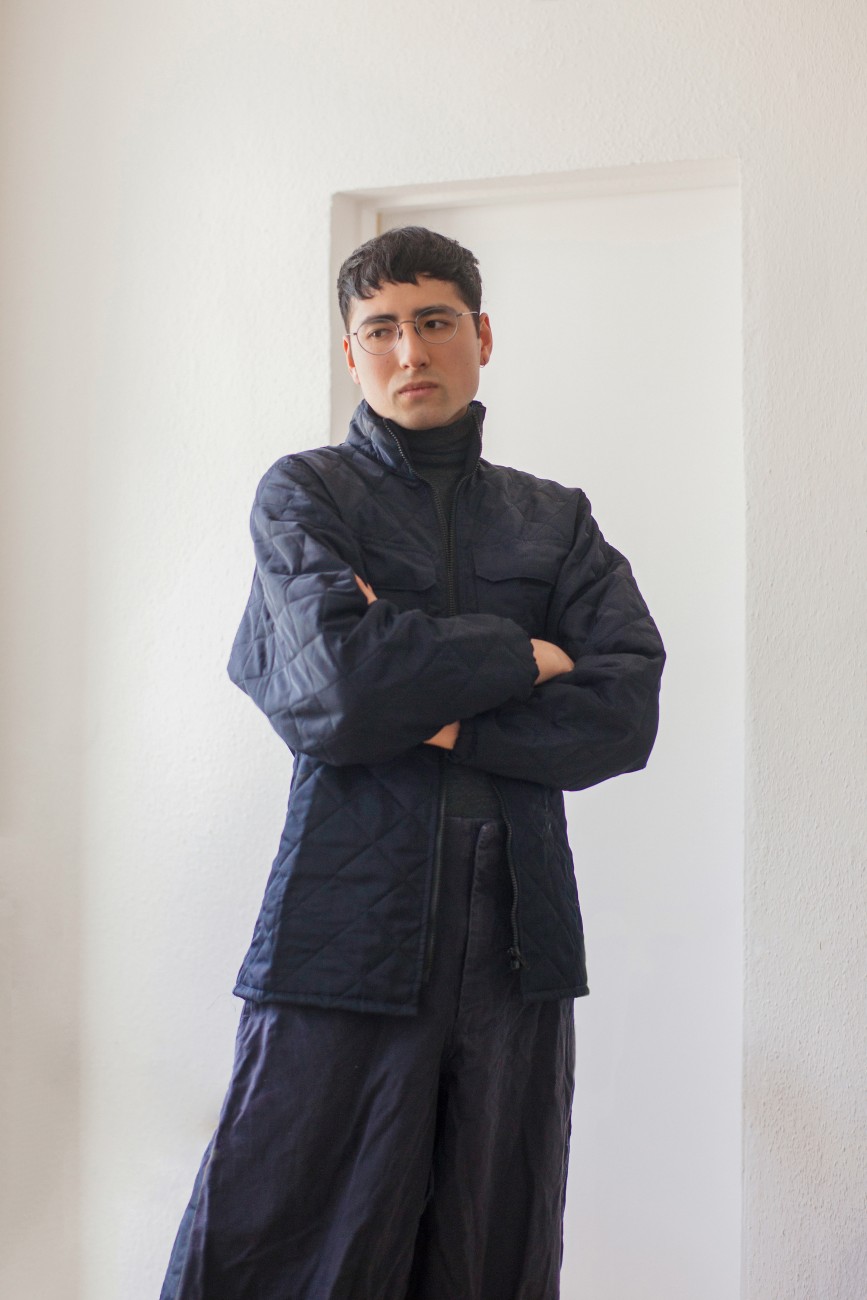
ΠMagazine: For example?
Christopher: For a while, I wore shirts the other way around on purpose. It started with me not caring what way I wore them but eventually someone noticed and even got a little irritated. I was surprised and realized how the smallest things can put people off.
ΠMagazine: What do you think about when you get dressed in the morning?
Christopher: I always think about who I’m going to meet that day. Am I hanging out with my boyfriend or am I hanging out with a group of people I’ll be going out with later? That affects the way I want to present myself. Also, I like wearing my friends’ and boyfriend’s clothes. It gives me some sort of permission to wear something I usually wouldn’t.
Œ Magazine: What are your friends’ reactions to this?
Christopher: I think it makes them feel more connected to me. It’s funny. I actually believe I dressed way cooler before meeting my boyfriend. Then I started wearing his shirts and his Marco Polo pullovers because I thought that by dressing more like him, we could get along better. And, once I had this date with a guy who told me, “Okay, take of your glasses and leave that bag at home the next time we meet.”
ΠMagazine: No way!
Christopher: Yes, it’s weird to think about it now, but at the time I was so emotionally invested that I thought “Okay, why not?”
ΠMagazine: So you left your bag at home the following time you met him?
Christopher: Yes. But I think the only reason I was able to do that, is that in reality my identity is not that attached to clothes. Sure, I still suffer the effects of people judging my appearance, and that has led me to adapting my looks on several occasions, but in the long run it doesn’t change me at all, and I know I can do everything differently tomorrow. Besides, I think clothes reveal more about the way you want to interact with the world than about your choices, convictions, and ideas. They are a language of their own.
Œ Magazine: I’m intrigued. We like to think about clothes as a language as well.
Christopher: Yes and the interesting thing is that contrary to our spoken language, which has a really short lifespan (I can say hello now and my hello will be gone after a second), the messages sent by clothes have the lifespan of an event, it could be a day, a week, or more. Because when you get dressed, the same statement is being sent over and over. It gets divulged continuously, every time someone registers your presence and it will reach a lot of people.
ΠMagazine: You mean clothes transmit information even when you are not intentionally engaging a conversation?
Christopher: Yes, for example if you wear fancy clothes that will translate as “I have money.” And it really doesn’t matter if you don’t have money, because when you bought the clothes you were investing a lot of money and that’s what’s going to resonate with people around you. What I’m trying to say is that sometimes you lose control over the message you are sending and this is something we rarely stop to consider. Also, spoken language often comes with a dialog so when I say “hello”, you can say “hello” back to me, whereas if I write it down, the people who read it might not be able to reach me anymore. They can take the “hello” and ask themselves “Do I like this hello, does it suit me right now, is this a story that I like and relates to my emotional state” and with clothes and their semiotic code, it’s a bit like that. These days there’s a lot of confusion and it’s becoming a one way thing or worse, a monologue.

Christopher Cao by illustrator Elena Scilinguo @elenza
ΠMagazine: What do you mean by confusion?
Christopher: Many of today’s fashion trends are originated from oppressed cultures that needed a voice. I’m thinking of gay culture for instance, and before that afro-american culture, or jazz culture. You know how harnesses are really hyped in Berlin at the moment? Well, before being cool, they were something gay people came up with to show what they were, since saying it out loud was too dangerous. It’s the hanky code. A signal not everyone can read and only the other oppressed person can connect to, answer to. So, we could say this dynamic is a form of non-verbal dialog. Only, once it gets appropriated and put into another space where people wear a harness, not because you want to have hard S&M sex, but simply because they want to be cool or admire the person who did it to begin with, it becomes shallow and, more importantly, it becomes a one-sided communication.
ΠMagazine: What are the consequences?
Christopher: A lot of mixed signals. It becomes harder to tell if someone is gay. On the bright side, it might indicate that the culture is not that oppressed anymore. In fact, I believe gay influence will disappear from fashion once homosexuality is fully accepted in society.
Œ Magazine: Can you think of a language linked to a subculture that is still “intact” and could be appropriated next?
Christopher: Mmm. It’s more of a movement than a subculture, but I think the next thing that will find its way into the mainstream is “health wear” combined with spiritual aspects. I’m thinking of energy bands and IT tech attire.
ΠMagazine: What kind of communication and exchange do you see in tech wear?
Christopher: In this case, maybe it’s more of a communication with your own body. It sounds a bit ridiculous, but it’s about having a gadget that makes us aware of what we are feeling and experiencing at any given time.
ΠMagazine: in order to have greater control over ourselves?
Christopher: Mmm, I would say it’s an answer to self-optimization.
ΠMagazine: And what is the non-verbal statement here?
Christopher: It’s about showing others how conscious you are.
ΠMagazine: Do you ever take part in acts of non-verbal communication like the ones we mentioned through your fashion choices?
Christopher: Maybe not that consciously, but someone once told me that I’m trying to be pitiful with my style, meaning that I’m trying to trigger other people’s empathy. My style is often cute and innocent, and yes, maybe I do it because I want people to act in my favor.
ΠMagazine: Do you act in favor of people that look innocent?
Christopher: Yes. Often the people I’m impressed with are outsiders and underdogs. I’m naturally drawn to them, so if I’m in a room full of people and there is one sitting alone, I will instantly go over and try to make him/her like me. I don’t know why. So, when something outfit-wise looks really off and I can tell the person wearing it doesn’t have a clue, I want to hug them. Other than that it’s very hard to impress me with clothes. I love something that is gorgeous, but that doesn’t make someone’s character attractive to me. It only makes their skill appealing to me. Another little fashion agenda of mine right now is trying to make Jack Wolfskin cool again (laughs)! I’m obsessed with the logo and I would love for it to become a symbol for gay “bear culture”, a secretly coded attire for people who like gay sex with bears, even if I don’t.
ΠMagazine: (laughs) How important are jackets for an outfit?
Christopher: Very! I think I’m pretty self-conscious about my body and moving is not easy for me. Wearing something on top just makes every movement look better in an instant.
ΠMagazine: How so?
Christopher: It’s just the way things fall. And it gives you something to play with, something to do! For instance, when you go into a club, the jacket will shake with you. That way it’s not all about your body.
Œ Magazine: It becomes sort of this “body-extension”. Is there something you would never wear?
Christopher: Jeans and belts. Never wore one in my life. Also, I couldn’t care less about nice socks and nice underwear. The best date of my life was with someone who said his secret fetish is ugly underwear.
ΠMagazine: What can you tell me about the outfit you are wearing right now?
Christopher: This outfit happened by chance. I’m wearing my dad’s under jacket and a turtleneck from a time where I was trying to look more sophisticated.
ΠMagazine: What is sophistication made up of in your eyes?
Christopher: Sophisticated means appreciating a delicacy and believing it’s worth more than something chaotic. So, in fashion, sophistication could mean reducing everything to more simple shapes and little color. I think it comes with a certain perversion. The “I understand this and you don’t and that makes me sophisticated” perversion.
ΠMagazine: What is a Berlin sophistication?
Christopher: Never heard of such thing (laughs)!
Œ Magazine: (laughs) But say, we were to pinpoint sophistication on the Berlin streets …
Christopher: I just think Berlin chemistry is not sophisticated today.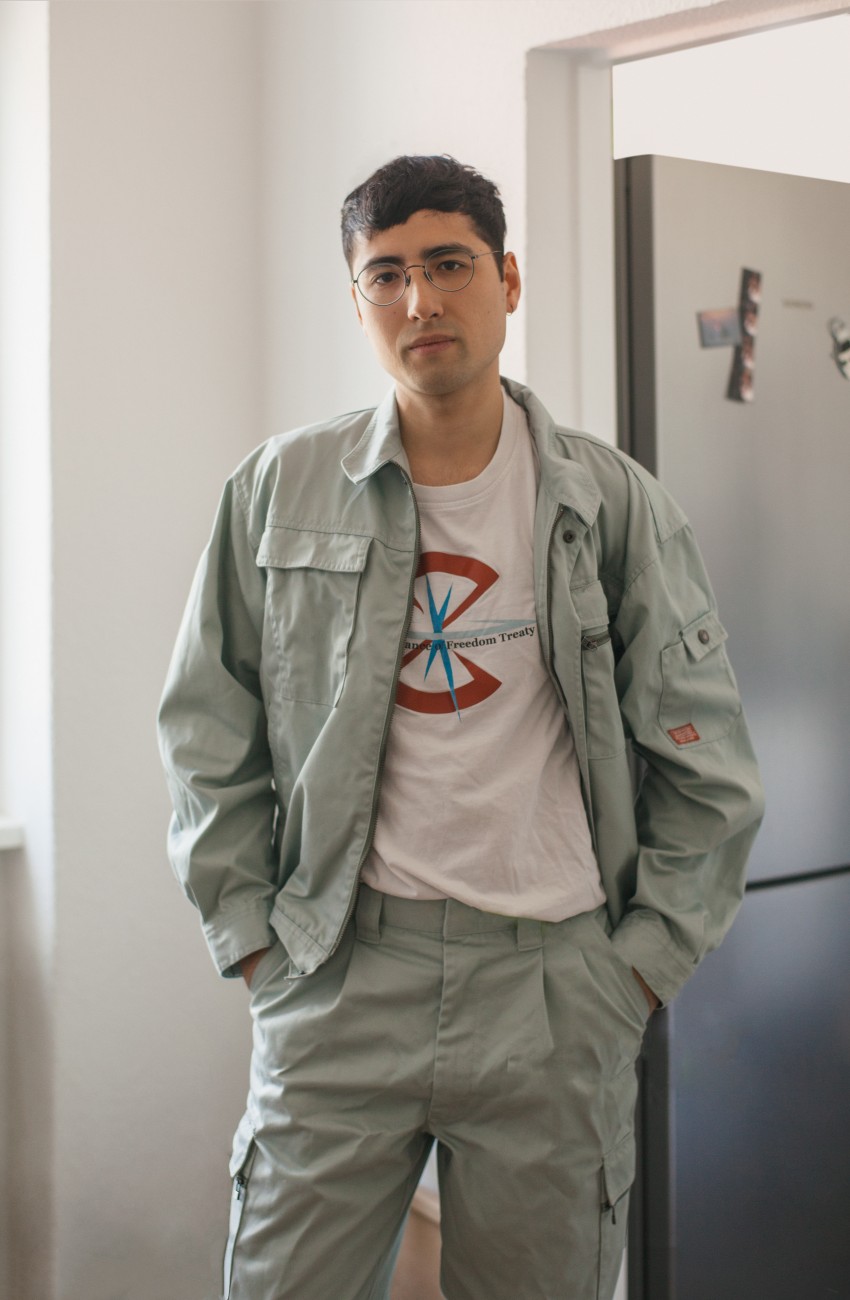
ΠMagazine: As opposed to what other city?
Christopher: Paris…? Paris is exclusive, intellectual and I don’t think that’s part of the Berlin image. It’s more about being rough.
Œ Magazine: What is a stereotype or cliché in Berlin fashion then?
Christopher: Not sure, but it’s probably the product of Berlin’s night life aesthetics. The aesthetics of people seeking satisfaction outside of their everyday lives, in a confined space, listening to intense music that can put them in another state of mind… but it’s complex and every time I try to categorize, I see many exceptions.
Œ Magazine: What about a cliché in men’s fashion in Berlin right now?
Christopher: I think the cliché is sitting in front of you. Gay boy comes to Berlin and starts doing turtlenecks, maybe a nice old fashioned haircut, wears sneakers… just like I did a few years back.

